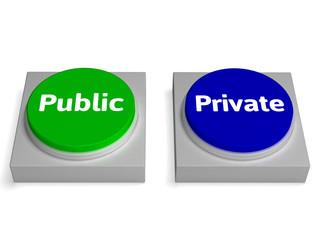We live in strange and difficult times, which often burden our societies with new fears, stress our resources and reflectively lead many countries to policies of tighter controls and limitations of our freedoms.
It is our ardent conviction that the present and future challenges, we face in Europe, can be much more successfully addressed with more freedom in our societies, not less. The strongest advantage of our common European heritage is comprised by our democratic liberties and our civic rights. History proves that more freedom strengthens our societies and such a statement is nowhere more applicable than in the area of Education.
Perhaps the greatest social achievement of the 19th and 20th century, was the establishment of the free for all public education system. Through this for the first time in human history universal school access was granted to all children irrespective of the social class they belonged.
A century and more later, the public school education system, in most European countries, appears to becoming less and less satisfactory. Teachers in public schools appear less motivated. Students in public schools appear more estranged from their educational environment and with less interest for their school program.
We feel the reasons of these inadequacies lie in the way public education is organized, in most countries. It is this type of organization that gave birth to a monopolistic, bureaucratic, non-competitive public school, incapable to evolve and incorporate the fast occurring changes in society and the new needs which emanate there off.
At the same time contemporary research shows that in most European countries, despite the fact that independent schools have less available resources than public schools, despite also the fact that their class sizes are usually larger than public schools, their students appear to gain more in competences and knowledge than their public schools counterparts.
The conditions I just described, stand valid in many European countries, certainly in Greece, and as a result, public opinion demands change, demands educational reforms, demands more freedom in education, demands to be granted the parental right of choice of the right school and the institutional instruments to exercise this right, which may I remind us all, is a fundamental right of the EU citizens as inscribed in article 14 of the EU Charter.
Thus, the questions which must be addressed by our democracies are:
Firstly, up to which point should the State prevent the exercise of freedom of choice in education and secondly, who should choose the education of our children, the politicians, the educators or the parents?
It is indeed a shame that at present the Greek government is plotting a course in the opposite direction, diminishing instead of increasing the range of parental choice in education.




 By: N. Peter Kramer
By: N. Peter Kramer

